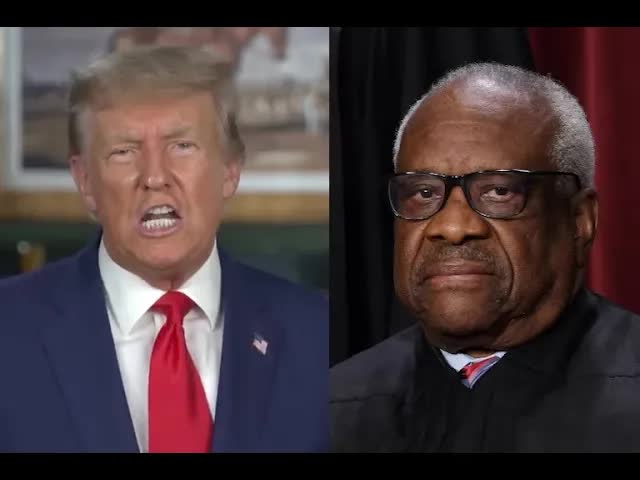In a recent episode of “The Legal Breakdown,” a pressing question from viewers took center stage: Can Supreme Court justices be charged with crimes?
The inquiry comes amid growing concerns about ethical standards within the highest court, particularly in light of troubling financial disclosures involving Justice Clarence Thomas.
This discussion not only highlights the responsibilities of those in power but also raises critical questions about accountability.
Glenn Kirschner, a former federal prosecutor, affirmed that yes, justices can indeed face criminal charges.
If evidence supports probable cause, a grand jury can issue an indictment, allowing prosecutors to move forward with a trial.
This means that no one, not even a Supreme Court justice, is above the law.
The implications of this are significant, especially when considering allegations against Thomas regarding his financial dealings.
Kirschner pointed out that Thomas has seemingly violated financial disclosure laws, raising alarms about the integrity of the judicial system.
Drawing from his extensive experience as a prosecutor, Kirschner recounted the anxiety he felt while completing annual financial disclosures, emphasizing how meticulous the process is meant to be.
He contrasted this with Thomas’s acceptance of gifts, including a lavish recreational vehicle worth a quarter of a million dollars, which went unreported.
The failure to disclose such substantial gifts can lead to serious consequences.
Under federal law, providing false information on financial disclosure forms can result in criminal charges, commonly referred to as “1001 violations.”
These violations carry hefty penalties, including potential prison time for each instance of lying under oath during confirmation hearings.
Kirschner recalled the testimonies of recent Supreme Court nominees who assured senators that they respected established precedents like Roe v. Wade.
Yet, once confirmed, these justices quickly reversed course, leading to accusations of dishonesty that could warrant legal repercussions.
The stark contrast between their sworn statements and subsequent actions raises eyebrows and calls into question the integrity of their confirmations.
When it comes to enforcing accountability, however, the question remains: will any governmental body take action against justices who may have broken the law?
Kirschner expressed skepticism, noting that despite requests from lawmakers for investigations into Thomas and Justice Samuel Alito, there appears to be little movement from the Department of Justice (DOJ) or the FBI.
The DOJ, alongside the FBI, is responsible for investigating potential crimes committed by public officials.
Yet, despite mounting evidence and admissions of wrongdoing, the silence from these institutions is deafening.
Kirschner highlighted that if Thomas himself acknowledges failing to disclose gifts, one would expect an investigation to follow suit.
A recent ProPublica article shed light on Thomas’s admission of misfiled financial disclosures, further complicating the narrative.
If a regular citizen were to admit such a mistake, it would likely trigger an investigation.
So why does it seem that the same standards do not apply to justices?
The apparent lack of action raises eyebrows and fuels speculation about the accountability of those at the highest levels of government.
As discussions continue around these ethical dilemmas, the notion of “poor judgment” as an excuse for missteps becomes increasingly tenuous.
Judges, especially those serving on the Supreme Court, are expected to exhibit sound judgment.
When they fail to do so, it challenges the very foundation of their authority.
The conversation surrounding these issues is crucial.
Viewers and citizens alike are encouraged to engage in discussions about the ethical responsibilities of our leaders.
As the legal landscape evolves, it’s essential to hold those in power accountable for their actions, regardless of their position.
In the coming weeks, “The Legal Breakdown” plans to address more viewer-submitted questions, shining a light on critical legal issues that impact society.
With transparency and accountability at the forefront, the series aims to foster a deeper understanding of the law and its implications for everyone.































